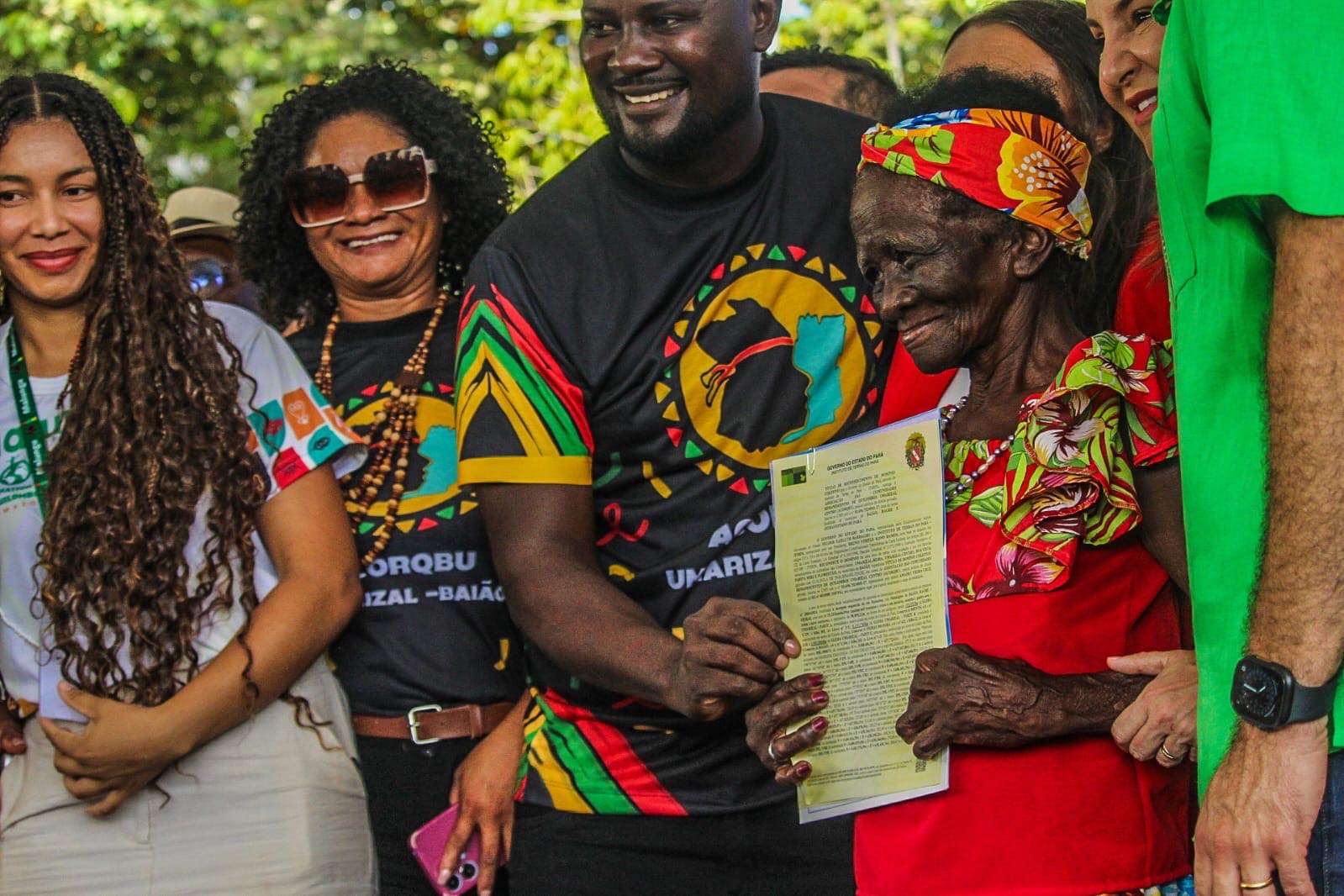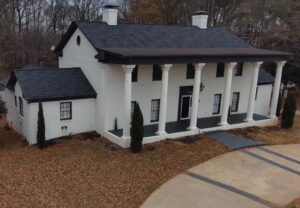BELÉM, Brazil — On Brazil’s Black Awareness Day last week, Daniele Bendelac’s family and neighbors had something new to celebrate: their quilombo’s ancestral territory had finally been legally recognized. Three days earlier, the government of Pará, in northern Brazil, had issued collective land titles to the quilombo of Umarizal and 11 other quilombolo communities. A quilombo is a Black rural community often founded by descendants of escaped enslaved Africans.
“When I found out, at first I was speechless, and then I started crying, crying a lot because I couldn’t believe it was really happening,” said Bendelac, 28, a geographer and surveyor now pursuing a master’s in natural resource management and local development in the Amazon. “Many people from the community have already passed away without even getting to hear news like this.”
Umarizal began its legal process 26 years ago, but its 1,300 residents — and their ancestors — have been anticipating this moment for more than a century. The community along the Toncantins lies about six hours by road from Belém, where the United Nations Conference of the Parties or COP30 climate summit has just wrapped up its negotiations. Umarizal’s first inhabitants fled large farms in the municipality of Cametá, seeking refuge in the forest to escape enslavement. Families have occupied the area for more than 150 years, sustaining themselves by collecting Brazil nuts, growing crops, and making flour.
“After a process that took 26 years and so many people fought for, and now we are the ones carrying it forward,” added Bendelac, whose parents are leaders of the community. “It’s something immeasurable that I still can’t fully describe, because it’s so enormous for us, who have been in this struggle for so long.”
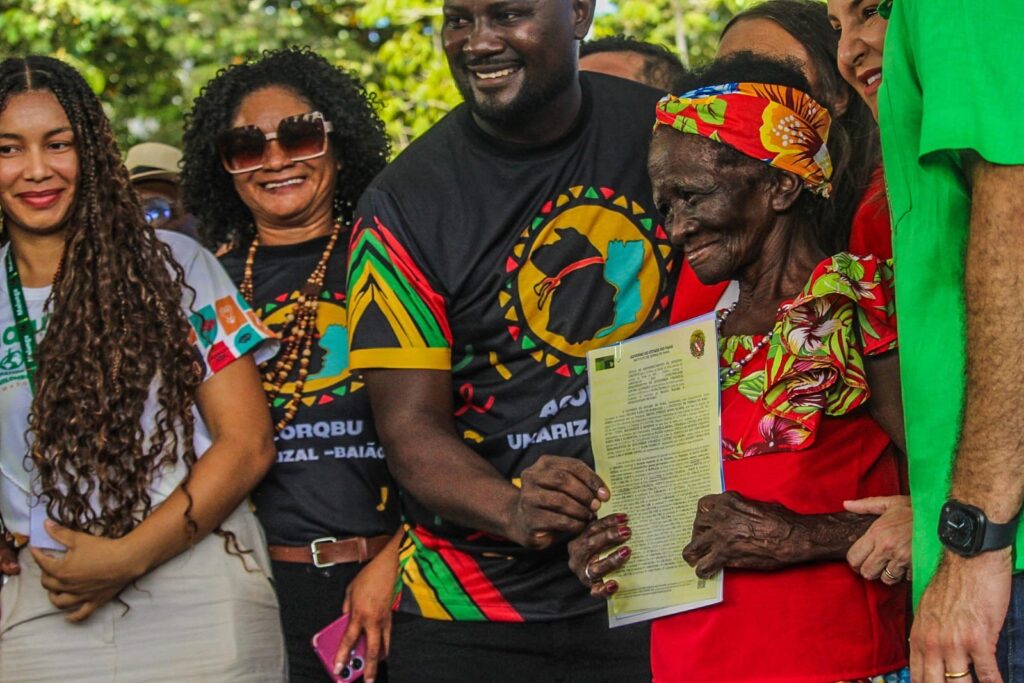
This isn’t just a local victory — it’s tied to COP30 in Belém and a larger discussion as to who is recognized as guardians of the Amazon. As COP30 wrapped up on Nov. 22—two days after Brazil’s Black Awareness Day, Nov. 20—quilombolo leaders say they are finally being recognized as guardians of the forest alongside Indigenous peoples. Despite a limited official presence inside the U.N. climate talks, they built a robust parallel schedule of panels and events, bringing data that shows how their territories protect the Amazon. Yet their focus remains on one central demand: securing legal recognition of ancestral territories for as many quilombolo communities as possible. Only that, they argue, can truly protect the forest and guarantee safety for the Black communities who have defended it for centuries.
The COP (Conference of the Parties) is a meeting organized by the United Nations to discuss measures to address the global climate crisis, primarily the increase in global temperatures.
To grasp what’s at stake for quilombolas, the people who live in quilombos, in Pará and across Brazil, you have to go back to Palmares, the 17th-century quilombo whose resistance gave Brazil its Black Awareness Day. On Nov. 20, 1695, Zumbi dos Palmares, the community’s leader, was killed defending it from Portuguese forces. Palmares, in what is now the state of Alagoas, was a self-sustaining settlement of thousands of enslaved people who escaped nearby plantations and held out for more than a century of attacks. In 1988, Brazil’s new constitution recognized the collective land rights of modern-day quilombo communities. Today, “quilombo” refers not only to such autonomous Black communities, but also symbolizes Afro-Brazilian resilience and resistance.
Umarizal’s story
For Bendelac, the land title is key to the survival of her community and the forest around it. During the 26-year legal struggle, residents faced constant threats from an outsider who had built large farms on their territory, stalling the titling process. On paper, the community barely existed: they were not consulted on major infrastructure projects, and their geographic isolation made it even harder to access public services and policies. Their expanded legal rights, however, will not change how they relate to the forest—they will keep protecting it.
“I see it this way: our relationship with the forest is inseparable. Keeping it standing means guaranteeing our survival and the survival of our future generations,” Bendelac said. “So if you don’t take care of that area, that land, we don’t have the benefit of being able to live—and live with dignity.”
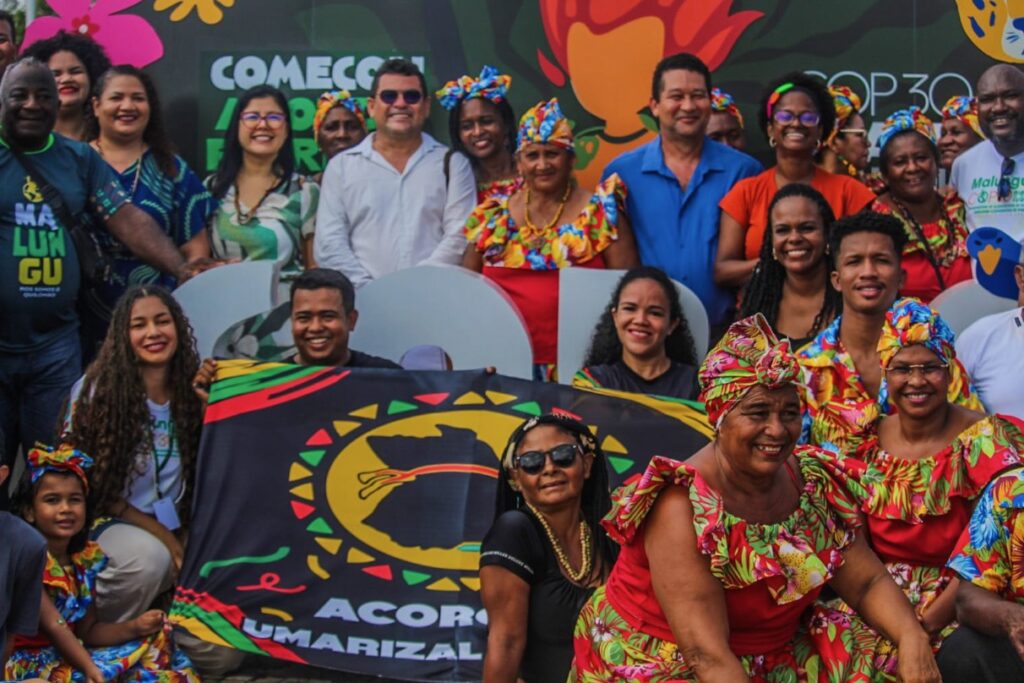
Denildo Rodrigues de Moraes, known as Biko Rodrigues, executive coordinator of CONAQ, a national coalition of quilombolo communities that advocates for quilombolo territorial, political, and cultural rights across Brazil, arrived at COP30 as one of just four quilombolas officially credentialed by the Brazilian government. That minimal formal representation didn’t stop the more than 1,000 quilombolo people who came to Belém from organizing an intense schedule of panels, marches, and side events. More than once, he and others had to remind people that most of the 30 million inhabitants of Brazil’s Amazon — roughly 64 percent — are Black. For Rodrigues, it was crucial to show how quilombolo territories keep the forest standing — and how that protection is central to the world’s response to the climate crisis.
Recent studies back up what quilombolas have long said: areas occupied by quilombos have significantly less deforestation. Forest cover loss is 60 percent lower where land titles have already been granted; titled territories maintain 91 percent of their forests, while those without titles preserve 76 percent. In other words: when quilombolas have titles, they can defend the forest.
A study co-sponsored by CONAQ and Instituto Socioambiental—Amazônia Quilombola— found 632 registered quilombolo territories in the Legal Amazon, the official name of a geographical area covering almost 14,000 square miles — an area roughly the size of Belgium — and home to 2,494 communities. This study showed that this is 280 percent more quilombolo presence than what the Brazilian government had on its books.
While the recent land titling of 12 quilombos in Pará pleased Rodrigues, he said it was still far from enough. “Twelve is not enough. In a year, approximately between 50 and 100 for the state of Pará would be the minimum,” said Rodrigues, who hails from the Vale do Ribeira. “At the national level it has to be much more. The more the government is able to guarantee titling for the quilombos, the better.”
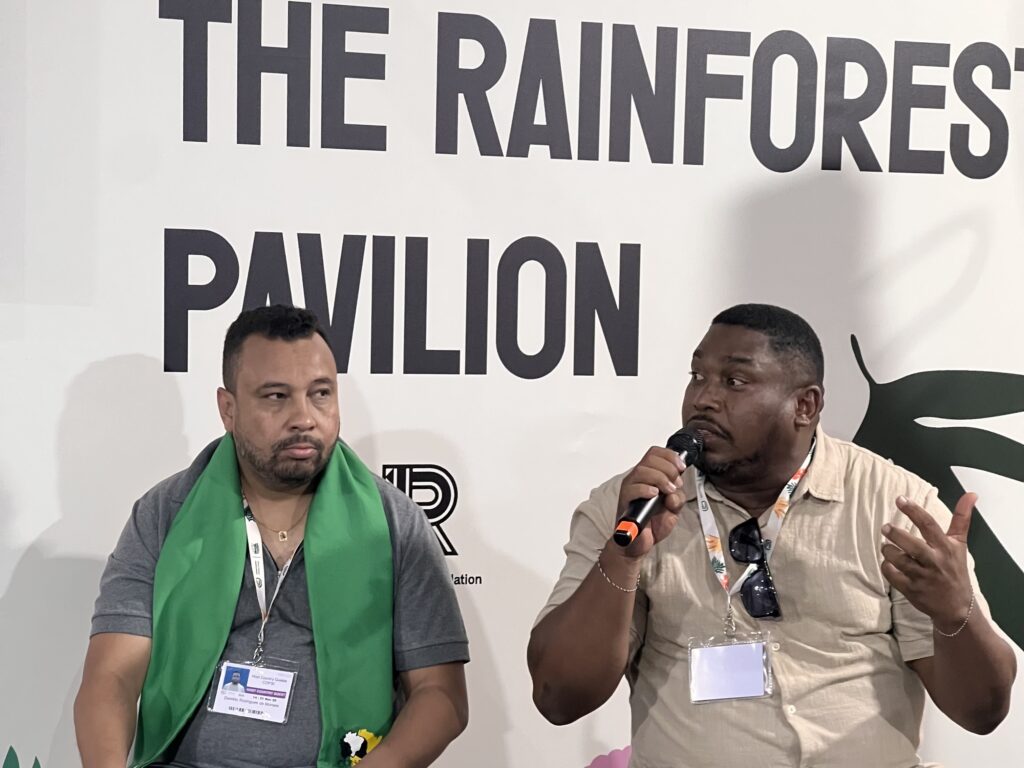
In preparation for COP30, CONAQ released its own Nationally Determined Contribution (NDC) with specific goals until 2035. The CONAQ document was proposed as a strategic annex to Brazil’s official NDC and sought to guarantee the leading role of quilombolo communities in the COP30 negotiations.
While quilombolo leaders like Rodrigues were shut out of the main negotiations on fossil fuels, climate finance, and adaptation, they zeroed in on the campaign to include a single word in the COP30 agreement texts: Afrodescendants. Black movement leaders from Brazil and Colombia pushed for explicit recognition of Afrodescentants in COP texts, arguing that it will strengthen judicial and financial support for communities that suffer from climate change — like favelas — and for those that prevent deforestation — like quilombos. It’s hard to believe, but COP texts didn’t even explicitly mention Indigenous peoples until 2015.
“By recognizing this group under this umbrella, it also recognizes us in other mechanisms that are just as important, such as climate justice and a just energy transition,” Rodrigues said.
Their campaigning paid off. On Nov. 22, for the first time in the history of the United Nations Framework Convention on Climate Change, the core documents of the climate negotiations, relating to the Just Transition, the Gender Action Plan (GAP), and the Global Adaptation Goals (GAG), were approved at COP30 in Belém, with explicit mentions of people of African descent. This mention is also found in the COP30 presidential policy document, called Mutirão.
The first COP in the Amazon has ended, but for quilombolas, their fight for the legal rights to their land remains. The measure of success for quilombolas will be how many territories are legally recognized and protected in the years that follow.
“Quilombola communities are an example of resistance in this country,” said Rodrigues. “They are groups of people who resisted the entire process of slavery, and they are guardians of refuge and guardians of the future.”


